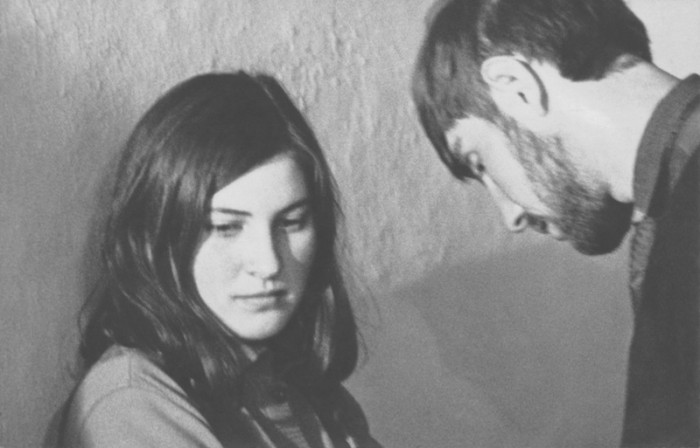We can only see ourselves in reflection.
Isn’t that strange?
For all of the magnificent complexity that is life, we are limited in our view of ourselves.
From an evolutionary perspective, one might conclude that the ability to see ourselves as others see us serves no useful purpose. Surely, if creation thought it beneficial, we would have been able to pop our eyeballs out to look back at ourselves.
However, when viewed through a metaphoric lens, the fact that we can only see ourselves in reflection is symbolic of a somewhat deeper truth: We need each other.
It is in the reflection of others that we come to know ourselves more fully.
At first glance, this may seem a provocative statement. For those who celebrate self-reliance, acknowledging the influence of others opinion of us may seem co-dependent—or worse—needy.
Yet, for those interested in self-development, the reflections of others can be invaluable. As we venture to “know thyself” we come to recognize how difficult it is to be objective. This is one reason we may seek out a teacher—to reveal to us things about ourselves that we are unable (or do not wish) to see. As one spiritual teacher of mine used to say to his students, “Have you yet noticed, that you are not very nice…at all.”
Of course, it is painful to our egos to confront the less-than-ideal aspects of our personalities. Particularly in intimate relationships, where we are the most vulnerable, these reflections can feel like attacks. Nothing cuts to the core more than when our lover offers us their constructive criticism, or points out some aspect of ourselves that we are ignorant of. After all, we all long to be loved just the way we are, irritating behaviors and all.
Although it can be hard to bear, the truth is we can use these occasions to see something about ourselves we may be blind to. If we can detach from our defensiveness and entertain the possibility that there may be some truth in another’s view of us, we may in fact see their comments as a rare and precious gift of perspective.
This insight came to me in a brief moment many years ago, while walking down a street in New York City. A man walked past me, accompanied by two women on either side of him. As they passed, I overheard his conversation with them and my immediate impression was that he was obnoxious and boastful.
I felt enormous compassion for him. I thought, how sad that a woman who spent less than 10 seconds in his company came away with that impression. I then speculated that he most likely was trying to impress the women and wondered if they were simply tolerating him. Even more tragic was the thought that he could go through his entire life like that and that he might not have anyone that cared enough to tell him. That’s when it dawned on me that when people really care about us, they will tell us if we are acting like fools.
Now, I realize that my quick judgment and assumptions may be more a reflection of me than of him, but let’s assume I got it right and that this one time, the guy was in fact acting like a jerk.
Having people that care enough about you to point out the things that you may be blind to, is actually a gift. It is an act of compassion for someone to give two f*cks to engage and be straight up with us.
This is of course a partial view. We have to be honest with ourselves, and discern whether these reflections are coming from love or are actually aggression in disguise. I’m not suggesting that we should absorb everyone’s impression of us without examination or give anyone else permission to make us feel bad about ourselves. No, that is not what this is about.
Rather, I am making a distinction, carving out a facet of the way in which we need each other, to reflect back to us the good, the bad and— if we are courageous—the ugly.
“For now we see in a mirror dimly, but then face to face. Now I know in part; then I shall know fully, even as I have been fully known” ~ English Standard Bible
To allow someone to take this role in our lives requires respect and trust. When delivered from a place of true love and non-judgment, we can be of great benefit to each other as we reach for our highest good. It is work that requires both integrity and an open heart on the part of all involved.
This is what I offer to my clients in my work as a therapist and relationship counselor. My clients share with me their goals and what they perceive to be the obstacles in their way. Often, the things they think are the problems are different than what I see. I support their aspirations and I am also there to help them see their rough edges. I gently help them to go deeper, to take responsibility for their part in their troubles and to assist them in finding their solutions.
Naturally, no one has a monopoly on truth; we all have our biases. I can only reflect back from the medium that I am. For this reason, I continue to work on myself and welcome the opportunity to smooth out my own rough edges.
Accepting all aspects of ourselves without judgment is an arduous task we undertake on the road of spiritual growth. Having friends who are also on the path and are willing to point out our blind spots is truly a rare and precious gift, one that requires we open our hearts and receive the messages.
As that very same teacher used to say— “It’s all for learning.”
Author: Roseann Pascale
Editor: Sarah Kolkka
Image: Wiki Commons







Read 1 comment and reply